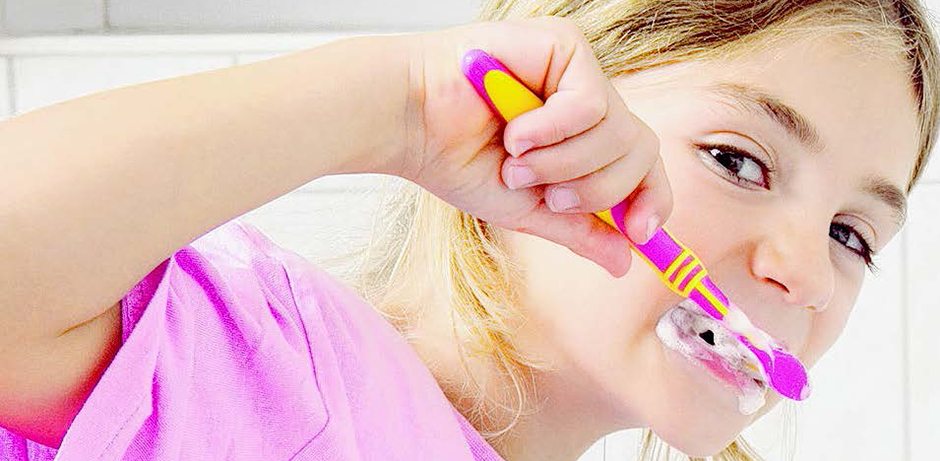
[This piece was written by Roseanne P. Henley, RDH, BS, Practice Manager of St. Peter’s Hospital Dental Clinic.]
It’s common knowledge that good dental care is vital to overall health, so it’s a definite plus when dentists are able to engage children early.
By age three, a child should have all 20 of her primary or “baby” teeth, and the American Academy of Pediatrics recommends a child should have his or her first dental visit no later than this age.
The American Dental Association and the American Academy of Pediatric Dentistry recommend even earlier visits – by age one or when the first tooth appears, whichever comes first. Even if there are no developing problems, children as young as age one can benefit from developing a positive relationship with a pediatric dentist and learning about proper oral hygiene and diet.
When teeth first begin appearing, a parent can clean them with a moist wash cloth and, later, with a soft child’s toothbrush. Flossing should begin as soon as there are two teeth that touch.
By age two or three, a child can do her own brushing with toothpaste. Brushing at least twice a day is an excellent step to help prevent cavities. A parent should supervise, though, to make sure proper form is used and the child doesn’t swallow too much toothpaste.
A balanced diet of fruits, vegetables, grains, beans, meat and milk is needed for healthy gums and teeth. Foods most likely to contribute to tooth decay include not just sweets but starchy foods such as bread, crackers, pasta, pretzels and potato chips. Frequent snacking puts the teeth at risk, and be cautious with sticky foods that are not easily washed away from the teeth by saliva, water or milk.
Also, avoid putting a young child to bed with a bottle of milk, formula, juice or sweetened liquid. Any sugary residue left in the mouth while the child sleeps provides a breeding ground for bacteria that in turn produce acids that attack the enamel of teeth.
Teeth represent a great deal more than a nice smile. With good habits and preventive care established early, many of the dental problems of adolescence and adult life become less worrisome.
St. Peter’s Dental Center provides high-quality, cost-effective, comprehensive dental health care to both children (beginning at age five) and adults. An experienced team of professionals work together with patients, families, social service agencies and community groups to offer a broad range of care services to local communities. The center also provides pediatric dental care to underserved, underinsured and uninsured children in the Capital Region through the Ronald McDonald Care Mobile program. For information, call 525-1757.





